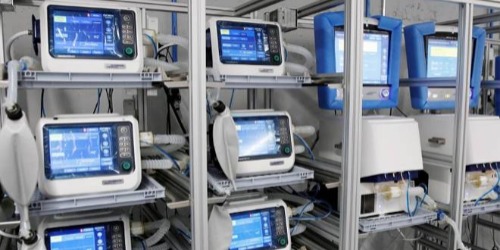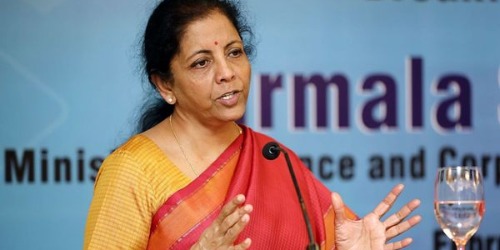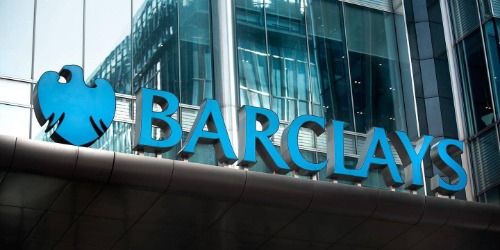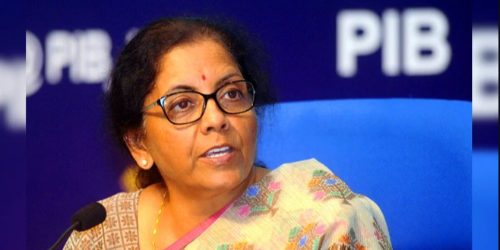Coronavirus scare: India Ratings cuts India's GDP forecast to 3.6% from 5.5% for FY21

Amid the nationwide lockdown in the wake of coronavirus outbreak, India Ratings and Research (Ind-Ra) has cut India's gross domestic product (GDP) growth forecast to 3.6% from 5.5% for the financial year 2020-21 (FY21). The spread of COVID-19 and the resultant nationwide lockdown imposed till April 14 will cripple most economic and commercial activities, the agency said in a latest report.
The agency has also lowered GDP forecast for current fiscal to 4.7% (9MFY20: 5.1%) from the National Statistical Office's advance estimate of 5%. It expects the GDP growth to come down to 3.6% in 4QFY20 and 2.3% in 1QFY21. This is the rating agency's fifth revision in GDP forecast so far. It had revised the GDP growth forecast to 5.6 per cent in January.
"The revision is based on the assumption of lockdown continuing till end-April 2020 (full or partial) and gradual restoration of economic activities May 2020 onwards," Indian subsidiary of Fitch group said in its report.
In the last one week, several rating agencies have cut its growth estimate for India due to the coronavirus pandemic. S&P Global Ratings has slashed its forecast for FY21 to 3.5% from its earlier estimates of 5.2% as it expects coronavirus to hit output. While CRISIL has lowered India's FY21 growth forecast to 3.5%, Moody's Investors Service had slashed India's GDP growth projection for 2020 to 2.5% from 5.3%.
As per Ind-Ra report, average growth is forecasted to decline to 2.8% in H1FY21 (April-September period) versus 5.3% in H1FY20 and recover to 4.3% in H2FY21 (H2FY20: 4.2%), due to the base effect and a gradual recovery and restoration of supply chain.
Some of the initial and visible impact of the spread of COVID-19 on the India economy has been the disruption in the production of select manufacturing sectors due to the breakdown of supply chain, near collapse of tourism, hospitality and aviation sectors and a rise in the work load of the healthcare sector. The micro, small and medium enterprises (MSMEs), irrespective of the sector they operate in, have begun to witness cash flow disruptions. This is not to say that other sectors are not impacted.
India Ratings, however, said that some the services sectors such as financial services, IT and IT enabled services have greater flexibility in their operations and they quickly readjusted or are readjusting their operations by allowing employees to work from home.
According to Ind-Ra, panic has gripped the Indian capital markets like elsewhere in the world. A changed outlook of investors has led to a huge outflow of capital and the rupee has come under intense pressure. Also, significant wealth erosion would impact the consumption levels, it said.
Adding to the woes, disruption in maturing and harvesting of rabi crop coupled with inability of agricultural markets to timely procure them could hit the farmers' income and rural demand. A stop on the construction activities will accelerate the problems of the real estate sector which is still struggling to access funding in the middle of a meltdown in the NBFC and banking sectors, it said.
It is notable that after agriculture, construction is the largest employment generator in the Indian economy.
Besides, closure of non-essential commercial establishment and multiplexes will also have a ripple effect on many sectors, the report said. This will led to decline in demand for consumer durables, entertainment, sports, wholesale trade, transport, tourism, hospitality etc.
In a bid to minimise the adverse impact of COVID-19 and the lockdown, both government and the Reserve Bank of India have announced several measures. The government has so far announced measures which are focussed on easing business related processes/compliance and a package for the vulnerable sections of the society. Similarly, the regulator has responded to the evolving situation in two tranches. In the first one, it announced measures to avert any immediate disruption in the financial system through a liquidity infusion and in the second one, it has eased the regulatory and supervision related norms to mitigate the financial stress building up in the system.
Ind-Ra expects the government to announce more measures in the coming days/weeks to mitigate the pains and concerns of the other sectors of the society/economy.
- 0
- Leave a comment
Battle against coronavirus: Maruti ties up with AgVA Healthcare to produce 10,000 ventilators per month

India's largest carmaker Maruti Suzuki India Ltd on Saturday said it had entered into an arrangement with AgVA Healthcare to try and produce up to 10,000 ventilators per month to help bridge the shortfall of the life-saving medical device in the ongoing battle against the coronavirus pandemic.
Maruti said AgVa Healthcare, which is an existing approved manufacturer of ventilators, would be responsible for the technology, performance and related matters for all the ventilators produced and sold by them. The company would use its suppliers to produce the required volume of components and use its experience and knowledge to upgrade systems for the production and quality control of the higher volumes.
"Any other assistance required would also be provided. MSIL would also help, to the required extent to arrange to finance and obtain all permissions and approvals required to enable the higher production. MSIL would provide these services free of cost to AgVa Healthcare," the company said in a statement. "The intention is to reach a volume of 10,000 units per month."
A ventilator is a mechanical breathing device that can blow air and oxygen into the lungs and are critical in the treatment of people with lung failure, a complication suffered by patients with severe COVID-19. It costs anywhere between Rs 5-12 lakh. Currently, India imports around 80-85 per cent of all medical devices for intensive care, including ventilators.
With the number of COVID-19 cases in India rising every day and the death toll reaching 20, the shortage of ventilators in the country is likely to get woefully exposed in the days to come. According to a Brookings report, if the number of cases spirals in India, it may need as many as 1,10,000-2,20,000 ventilators as early as mid-May. It estimated the number of ventilators today in the country at a maximum 57,000.
The Indian government has reached out to other companies including Mahindra and Mahindra, Tata Motors and Hyundai to look at ways to manufacture ventilators expeditiously. Two days ago, Mahindra had said it had indigenously developed a low-cost Rs 7,500 ventilator and is talking to two PSUs in the sector for developing it further. Responses to a detailed questionnaire sent to Mahindra are awaited.
Hyundai has also said it has begun the process of importing COVID-19 advanced diagnostic testing kits that can serve 25,000 people in India from South Korea.
"We are committed to supporting the government's spirited fight against COVID-19 crisis. Our contribution towards supplies of advanced diagnostic testing kits will help over 25,000 people," said SS Kim, Managing Director and CEO, Hyundai Motor India Ltd. "We will continue to monitor the situation closely and support the Indian government with multi-layered CSR initiatives to bring back normalcy at the earliest."
Besides the ventilator production, Maruti is also looking into the possibility of producing masks and other protective equipment. Krishna Maruti Limited, a joint venture of MSIL with Ashok Kapur, would manufacture 3-ply masks for supply to the Haryana and Central governments. Production is expected to start as soon as all approvals are received. Kapur would also provide 2 million masks free of cost as his contribution.
Another MSIL joint venture Bharat Seats Limited would be manufacturing protective clothing as soon as all approvals are in place. "All manufacturing units would take maximum care to protect the safety and health of the workers in accordance with the government recommended practices," the company said.
Coronavirus relief package: Free gas cylinders to Ujjwala beneficiaries for next 3 months

Finance Minister Nirmala Sitharaman on Thursday announced that Ujjwala beneficiaries will get free cooking gas for three months. The FM said that the move would benefit 8.3 crore families in the country.
In order to support the poor amid coronavirus outbreak, Sitharaman announced a Rs 1.7 lakh crore Garib Kalyan Yojana. The package includes cash transfers for farmers, MGNREGA workers, widow/pensioners, apart from benefits under Jan Dhan Yojana, Ujjwala scheme and EPFO.
"A package is ready for the poor who need immediate help like migrant workers and urban and rural poor. No one will go hungry. The package is worth Rs 1.7 lakh crore," Sitharaman said.
The relief package also includes Rs 50 lakh medical insurance cover for each frontline Asha workers, sanitation workers, and medical staff involved in managing coronavirus outbreak.
Also, for the next three months, Rs 500 per month will be distributed to 20.5 crore women Jan Dhan Account holders. The government also hiked the daily wage under MNREGA to Rs 202 a day from Rs 182.
For farmers, the FM said that the government would release the first instalment of Rs 2,000 in the first week of April under the existing PM Kisan Yojana. Total 8.69 crore farmers will be benefited from this moved, the FM claimed.
For poor senior citizens, widow and disabled, the FM announced ex-gratia of Rs 1,000.
For women self-help group (SHGs), Sitharaman declared collateral-free loan up to Rs 20 lakh, which will help 63 lakh self help groups.
Lastly, the FM said that government will pay employee provident fund (EPF) contribution for both employer and employee (12 per cent) each for the next three months The package is for companies that have upto 100 employees and are earning less than Rs 15,000 per month.
Covid-19 impact: Barclays cuts India's GDP target to 2.5%, fiscal deficit to 5% of GDP

In the wake of Prime Minister Narendra Modi declaring a nationwide lockdown of 21 days in India, foreign brokerage Barclays has cut country's calendar year (CY) 2020 GDP forecast from earlier 4.5 per cent to 2.5 per cent now. It has also raised its fiscal deficit projections to 5 per cent of GDP from 3.5 per cent earlier.
"In our baseline assumption, we now factor in four full weeks of a complete shutdown, followed by another eight weeks of partial shutdowns across the country until the end of May (of which one week has passed already), as the COVID-19 related precautions will likely remain in the system. We estimate that the cumulative shutdown costs will be around $120 billion, or 4 per cent of GDP," says Barclays.
As a result of this 'anticipated material slowdown in activity', the foreign brokerage expects the RBI to undertake larger, and deeper rate cuts than previously factored in. "We now see the RBI moving close to 65 basis points at its April policy meeting, and believe an additional 100 basis points of cuts is needed to stabilise market sentiment between the June-August policy meetings (165 bps cumulatively to take rates to 3.5 per cent), along with outright bond purchases through OMOs, possible forbearance for bank loans and targeted liquidity windows for banks and NBFCs," it says.
Barclays expects the government to invoke the clause for managing natural calamities to find fiscal space. This may even entail the RBI directly placing funds with the government, but we wait for more clarity on this issue, it says.
The brokerage says there could be a slippage of 100 basis points due to weaker growth on its fiscal deficit projections of 5 per cent of the GDP. "This will push the consolidated fiscal deficit to -8.2 per cent of GDP, with risks clearly biased upwards."
Meanwhile, stock market on Wednesday rallied taking cues from the global markets, which advanced after US senate leaders reached a deal with the White House on $2 trillion economic stimulus to buttress the economy amid coronavirus-led challenges.
The benchmark Sensex spiked 2,116 points to hit a day's high of 28,790.19, while Nifty traded above its crucial 8,300 level. The total number of active coronavirus cases in India stand at 512 so far, as per Ministry of Health & Family Welfare.
Finance Minister's Top 10 Announcements On Relief Steps Over Coronavirus

Finance Minister Nirmala Sitharaman on Tuesday announced a slew of relief measures for taxpayers and businesses as the country entered a second day of lockdown to curb the coronavirus pandemic. Announcing a relaxation in the due dates for filing of certain returns of income tax as well as Goods and Services Tax (GST), the Finance Minister said the government is already working on a fiscal package to shielf the economy against the rapidly-spreading coronavirus (COVID-19) outbreak, and will soon make an announcement. Briefing the media through video conferencing, the Finance Minister said . The announcements come days after Prime Minister Narendra Modi announced a special task-force headed by the Finance Minister to help businesses already facing strain due to the pandemic. The country has already reported 482 cases of the coronavirus, and health experts have warned that a big jump could be imminent.
Here are 10 big announcements for taxpayers and businesses:
1. The Finance Minister announced a ten-fold increase in the threshold for default under the Insolvency and Bankruptcy Code (IBC) to Rs 1 crore. Currently, the threshold of triggering insolvency cases stands at Rs 1 lakh.
2. In a major relief for the public, as only essential services remained open in many parts of the country to curb the spread of coronavirus, the Finance Minister announced free-of-charge withdrawals from ATMs of any bank for next three months.
3. For taxpayers, the government extended the due date for filing tax returns towards income earned in financial year 2018-19 (assessment year 2019-20) to June 30.
4. The Finance Minister also announced a relaxation in the interest rate applicable on delayed income tax returns (ITRs) to 9 per cent from the existing 12 per cent.
5. Extending tax dispute resolution scheme "Vivad Se Vishwas" by three months, also to June 30, Ms Sitharaman said those availing the scheme will not be required to the 10 per cent interest on principal as mandated under existing rules.
6. She also announced an extension in the due date for mandatory linking of Aadhaar with PAN to June 30. Currently, the compulsory seeding of the Aadhaar number into the PAN has to be carried out by March 31.
7. The government also announced a range of relief measures for companies, including an extension in the deadline for filing returns towards the months of March, April and May to June 30.
8. Also, companies with a turnover of less than Rs 5 crore will not have to pay interest, penalty or late fee for filing delayed returns, the Finance Minister said.
9. Announcing a relaxation for companies to hold board meetings for next two quarters, Ms Sitharaman said: "If no board meeting is held for 2019-20, it will not be considered a violation."
10. Today's moves are under the special task-force constituted by government recently to tackle the coronavirus outbreak, the Finance Minister said.


